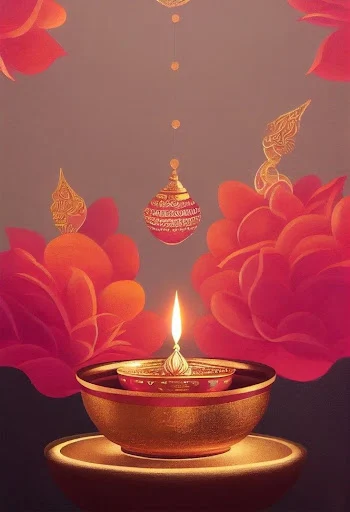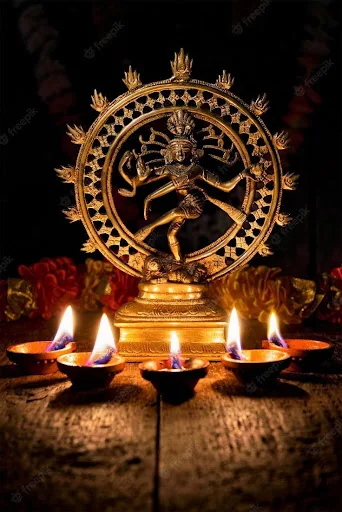The Festival of Lights: A Deep Dive into Diwali Celebrations
Diwali, also known as Deepavali, is one of the most prominent and cherished festivals in India. Often referred to as the "Festival of Lights," Diwali is a time of profound cultural, religious, and social significance that has been celebrated for centuries. In this comprehensive exploration, we will delve into the various facets of Diwali, from its historical origins to the contemporary celebrations that light up the Indian subcontinent.
Diwali, much like the tapestry of Indian culture, is woven with threads of mythological and historical tales. One of the most renowned narratives associated with Diwali is the return of Lord Rama to his kingdom of Ayodhya after vanquishing the formidable demon king, Ravana. The people of Ayodhya, overjoyed at their beloved prince's homecoming, lit lamps and diyas to dispel the darkness that had shrouded their lives during Rama's exile. This tradition endures as the hallmark of Diwali, symbolizing the victory of light over darkness, knowledge over ignorance, and hope over despair. It is essential to note that different regions in India have their unique interpretations and stories connected to Diwali, each adding a layer of diversity to the celebration.
The journey of Diwali celebrations begins weeks in advance with thorough cleaning and decorating of homes. This meticulous preparation is not just a ritual but a symbolic act of preparing one's abode to welcome the goddess Lakshmi, the embodiment of wealth and prosperity. Homes are adorned with vibrant Rangoli designs, intricate and colorful patterns created using rice flour, colored powders, and flower petals, adorning the entrances with a burst of colors and artistry.
The most enchanting aspect of Diwali, of course, is the illumination of countless lamps, diyas, and candles. These tiny flames collectively create a dazzling panorama of light that engulfs communities and neighborhoods. It's a visual spectacle that signifies the collective triumph of light over darkness and serves as a powerful metaphor for the eternal battle of good over evil. Families, neighbors, and entire communities join hands to light up their surroundings, turning even the darkest corners into a canvas of radiance.
Diwali is not only a cultural celebration but also holds profound religious significance for millions of Indians. Devotees offer prayers, engage in devotional activities, and perform various religious rituals during this time. The goddess Lakshmi, often depicted as seated on a lotus and flanked by elephants, is particularly revered during Diwali. Special pujas (prayers) are dedicated to her, beseeching her blessings for wealth and prosperity. Temples across the country are adorned with exquisite decorations, and people visit them in large numbers to seek the divine's favor.
The Diwali feast is a mouthwatering smorgasbord of delectable dishes and sweets. Mithai, or Indian sweets, are at the heart of this culinary extravaganza. Ladoos, jalebis, barfis, and a myriad of other sweet delicacies are prepared with love and precision. These treats are not just for personal indulgence but are also exchanged with family and friends, reinforcing the bonds of love and friendship. Savory delights like samosas, pakoras, and various regional delicacies also grace the dining tables, ensuring that Diwali is as much a feast for the senses as it is for the soul.
While Diwali is deeply rooted in Indian culture and tradition, its celebration has transcended borders and reached far corners of the globe. With the Indian diaspora scattered worldwide, Diwali is no longer confined to India's borders. In countries with significant Indian populations, Diwali is celebrated with enthusiasm, and in some cases, iconic landmarks are illuminated to mark the festival. This global recognition underscores the universal appeal of Diwali and its power to unite people across cultures.
While Diwali is a time of joy and celebration, it has not been without its share of environmental concerns. The use of firecrackers, a tradition associated with Diwali for many years, has raised issues related to air and noise pollution. In recent times, these concerns have prompted a shift towards eco-friendly and noiseless Diwali celebrations. Many individuals and communities are now choosing sustainable ways to celebrate the festival, emphasizing the need to protect the environment while enjoying the festivities.
In conclusion, Diwali stands as a vibrant testament to India's rich cultural and spiritual heritage. It encapsulates the essence of the victory of light, knowledge, and goodness over darkness, ignorance, and evil. Beyond the rituals and traditions, Diwali is a time of togetherness, love, and unity. As we celebrate Diwali, it is imperative to also be mindful of the environment and strive to make it a festival of light that is both spiritually and ecologically illuminating.








No comments:
Post a Comment